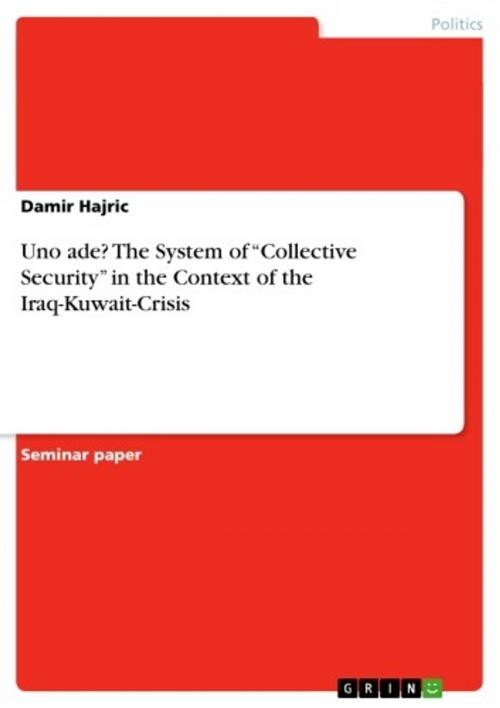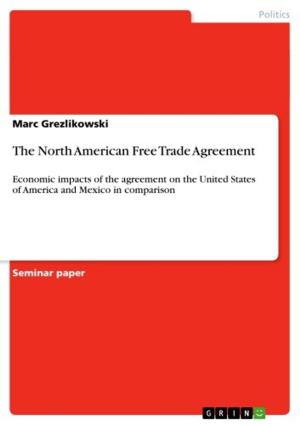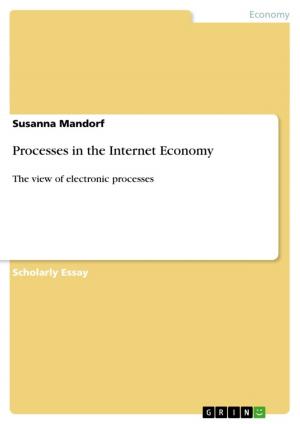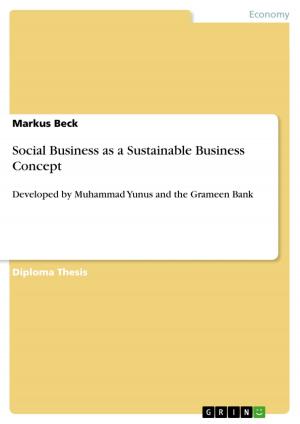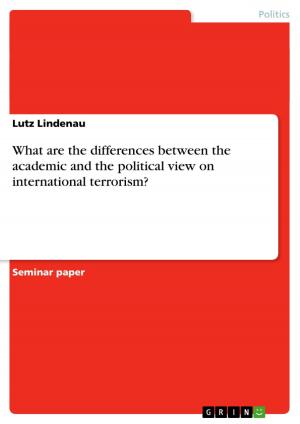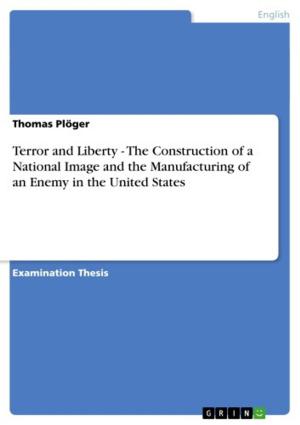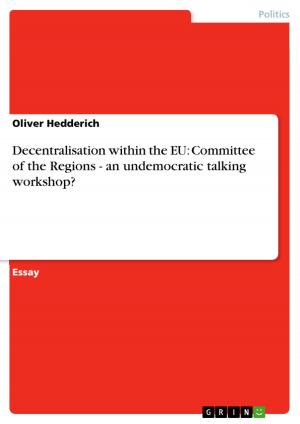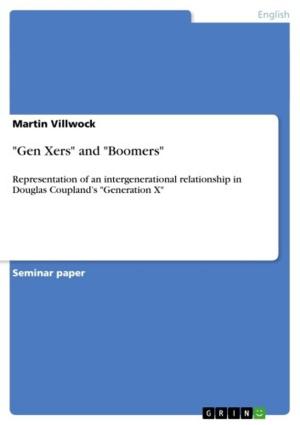Uno ade? The System of 'Collective Security' in the Context of the Iraq-Kuwait-Crisis
Nonfiction, Social & Cultural Studies, Political Science, International, International Relations| Author: | Damir Hajric | ISBN: | 9783640126590 |
| Publisher: | GRIN Publishing | Publication: | August 1, 2008 |
| Imprint: | GRIN Publishing | Language: | English |
| Author: | Damir Hajric |
| ISBN: | 9783640126590 |
| Publisher: | GRIN Publishing |
| Publication: | August 1, 2008 |
| Imprint: | GRIN Publishing |
| Language: | English |
Seminar paper from the year 2008 in the subject Politics - International Politics - Region: Near East, Near Orient, grade: 13-14 Punkte, University of Marburg, 33 entries in the bibliography, language: English, abstract: Due to the Iraqi aggression against Kuwait, Chapter VII of the UN-Charter has served for the Security Council to legalize military intervention against Iraq.13 In this connection, it is relevant to deal with Chapter VII as the only element within the Charter which authorizes the Security Council to make use of military force in case it characterizes a crisis as a threat for international peace or as a breach of peace. There from, scopes of action to protect international peace and security, but also possible barriers will be interpreted. Based on these theoretical fundamentals, the second part intends to give an empirical analysis in which it should be proven to what extent the Iraq-Kuwait crisis can be regarded as a renaissance of usage of force and in to what extent it can be really regarded as an example of outstanding cooperation between the members of Security Council. It would go beyond the scope of this paper to analyse every Resolution which passed by the Security Council before Resolution 678 was accepted and there is no interest in going into details about military action on the field.14 First of all it is relevant to give a short differentiation between Chapter VI and Chapter VII, because each of them suggests other strategies on how to treat a conflict. [...]
Seminar paper from the year 2008 in the subject Politics - International Politics - Region: Near East, Near Orient, grade: 13-14 Punkte, University of Marburg, 33 entries in the bibliography, language: English, abstract: Due to the Iraqi aggression against Kuwait, Chapter VII of the UN-Charter has served for the Security Council to legalize military intervention against Iraq.13 In this connection, it is relevant to deal with Chapter VII as the only element within the Charter which authorizes the Security Council to make use of military force in case it characterizes a crisis as a threat for international peace or as a breach of peace. There from, scopes of action to protect international peace and security, but also possible barriers will be interpreted. Based on these theoretical fundamentals, the second part intends to give an empirical analysis in which it should be proven to what extent the Iraq-Kuwait crisis can be regarded as a renaissance of usage of force and in to what extent it can be really regarded as an example of outstanding cooperation between the members of Security Council. It would go beyond the scope of this paper to analyse every Resolution which passed by the Security Council before Resolution 678 was accepted and there is no interest in going into details about military action on the field.14 First of all it is relevant to give a short differentiation between Chapter VI and Chapter VII, because each of them suggests other strategies on how to treat a conflict. [...]
